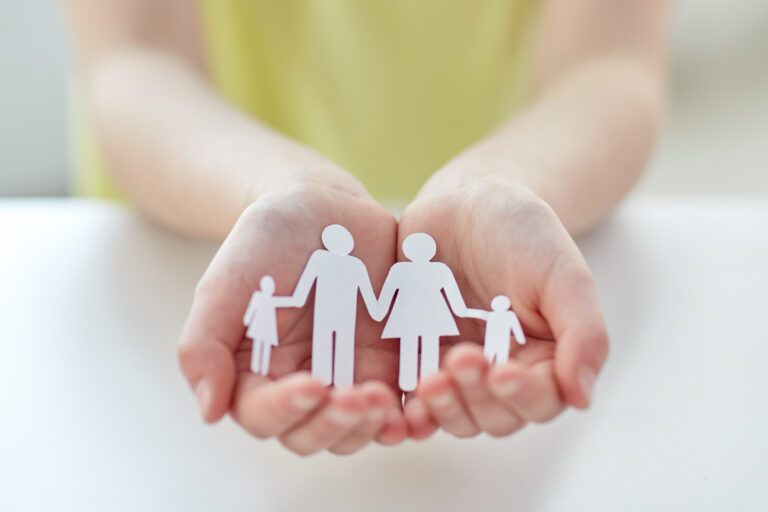Eating disorders are serious mental health conditions, which have the highest risk of death of any mental illness. Sadly, the prevalence of eating disorders has been increasing and now it is estimated to affect 8.4% of women and 2.2% of men worldwide, yet in our experience, there are very few eating disorder treatment centres which are able to help people to recover. That’s why we’ve launched our eating disorder treatment programme and in this blog we’ll be explaining more about eating disorders and how to treat them, to help you spot the signs and know that there is help out there for you.
Why is there a lack of support for people with eating disorders?
Unfortunately, most private rehabilitation centres don’t and can’t take patients with eating disorders, as they require a lot of expertise, patience and care. All staff members need to be trained to know how to respond to the common behaviours and fears, as it’s more complex than addiction.
Many people suffering from eating disorders are young. In fact, eating disorders are the third most common chronic illness among adolescents after obesity and asthma. Helping younger clients is very rewarding, but also very challenging and emotionally draining. You need to be there for both the client and their family and offer a lot of ongoing support after they leave the centre, which puts many facilities off from offering this service. Unfortunately, it’s not common for people with eating disorders to seek professional help, but it is highly effective and research shows that with treatment, 60% percent of eating disorder patients will make a full recovery.
Eating Disorder Treatment at The Bridge
At our luxury rehab in Spain, we are different. We are passionate about helping people deal with issues around food and body image and have worked hard to develop a powerful and effective eating disorder treatment programme, which offers a safe and discreet place for clients to recover in privacy and with dignity. Unlike other units which take on a lot of clients at once, we are small and intimate, which means there is nowhere to ‘hide’. There are also fewer opportunities to learn negative behaviours and practices from each other, or create a competitive environment, which is not conducive to recovery.
We ensure that in the early stages of their eating disorder treatment our clients are treated separately from our other clients recovering from alcohol and drug addiction. The Bridge does not see a similarity in the two illnesses and uses different techniques and approaches to ensure that all clients get the very best care.
Two of our founders have direct experience with eating disorders and recovery and understand what our clients are going through. They want to give the very best care possible for these vulnerable clients and have created a highly trained team including eating disorder trained nurses, therapists and support staff, who experienced and fully prepared to be able to deal with the many challenges associated with these conditions.
We take a multi-faceted and long-term approach at our eating disorder treatment centre. Clients receive specialist therapy, including talking therapy, CBT and trauma therapy. They also work with a dietician and receive nutritional rehabilitation, yoga and classes to build strength and resilience in their body and minds.
Clients usually stay at The Bridge for 8-12 weeks, for an intensive period of treatment, close monitoring and nutritional rehabilitation. However, we understand just how complex these conditions are and commit to offer support to our clients and their families, for as long as they need when they leave our residential eating disorder treatment centre.
Our highly trained, experienced team treat our clients with patience, tolerance and kind assertiveness, understanding the complexities of their conditions, such as being secretive, and deal with this head on.
We are here to help people with eating disorders, and their families, throughout this difficult journey and have had excellent results. The Bridge is a haven, where you can rest and recover while receiving therapy and practical support on how to live free of food and body image issues. At our beautiful villa in Andalusia, you can regain strength and control, with nourishing and delicious meals prepared by a chef and a bespoke eating disorder program. Contact us to discuss how we can help you.
Now let’s dig a little deeper into eating disorders and how they manifest, as well as the type of treatment needed to recover.
Common Characteristics of Eating Disorders
There are a number of very different types of eating disorders, including anorexia nervosa, bulimia nervosa and binge eating disorder. While these share many similar characteristics, not all eating disorders manifest in the same way and they require personalised treatment options and a multi-faceted approach.
If you fear that you or your loved one may be suffering from eating disorders, look out for these traits and behaviours –
- Poor body image
- Low self-esteem
- Perfectionism
- Being highly sensitive
- A tendency to black and white thinking
- Being secretive and controlling around food and eating
- Regular extreme dieting and disordered eating
Common Symptoms of an eating disorder
Here is a small selection of symptoms to look out for from The National Eating Disorders Association (NEDA) –
- Worries about weight and highly controlled eating habits, including refusal to eat certain foods, skipping meals and food rituals
- Being uncomfortable eating around others
- Extreme mood swings and isolating themselves from others
- Worrying about their weight, shape, body size and appearance
- Significant changes in weight – including putting on weight
- Cramps, missing periods, feeling cold, dizzy or weak
- Dry skin and hair, brittle nails and dental problems
There’s an excellent article which shares more common symptoms and those associated with anorexia, bulimia and binge eating disorder on the National Eating Disorders website, which is a very useful resource. Click here to read.
How to treat an eating disorder?
The keys to eating disorder treatment include building new life skills, finding resilience, gaining knowledge and building confidence. Eating disorders are complex, but clients do respond well to treatment and can look forward to a life free from the obsession with food.
When thinking about how to treat an eating disorder, it is important to remember that Recovery isn’t just about food and weight. Lasting and meaningful change comes from finding something deeper, a new purpose in life, a sense of being connected to other people. We aspire to help people thrive, not just survive and change their mindset to set themselves up for success.
Unhelpful thoughts, beliefs and values regarding food and body image lead directly to behaviour which can sometimes feel unsafe, limiting, controlling and isolating. At The Bridge, we believe that recovery means less thinking and worrying about food and exercise, and more interest in everything else. We want you to be able to sleep at night without obsessing about tomorrow or yesterday. We tackle common aspects of eating disorders such as Perfectionism, ‘I’ve -blown-it’ thinking, and beating oneself up.
A crucial part of the recovery process is dealing with the physical and nutritional imbalances that lead to cravings and difficulties with weight management. We teach clients how to take care of themselves with food, eat when hungry and able to stop when they had enough.
Another important part of treatment is to get to the root of why they are doing what they are doing. Sometimes an eating disorder is an expression of emotional pain and using food and exercise is often the only strategy that people with eating disorders have to manage and deal with their feelings. You can use talking therapy to expose the WHY, start dealing with and processing that pain and be aware of what is fuelling the behaviour. We can then work with them to develop healthy coping strategies that they can take into the world when they leave us.
Another common effect of eating disorders is the breakdown of relationships with families and friends. Due to secretive behaviour, not wanting to eat around others and a sense of shame, people with eating disorders will often isolate themselves from their loved ones. A key part of eating disorder treatment is to help a person repair their relationships with their families and friends. We will help you find the best you can be in your education, your career and your most important relationships.
Our aim is to help our clients enjoy a life free from food obsessions and free from compulsions to binge or purge, diet, or exercise harmfully. Our eating disorder service has been created to offer a safe place for our clients to recover in privacy and with dignity, with crucial support for their families at this difficult time. We are here to help clients with Anorexia nervosa, Bulimia nervosa, Binge eating disorder and Disordered eating. Our programs are bespoke and tailored to each client’s needs.
Please contact us to discuss how we can help you or your loved one.




